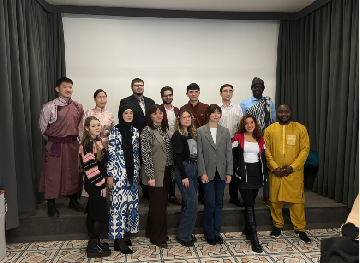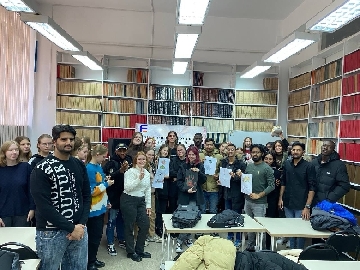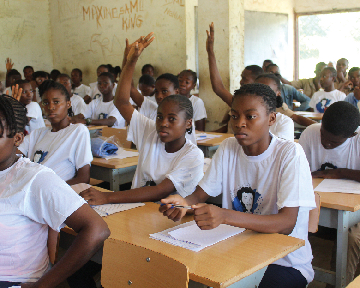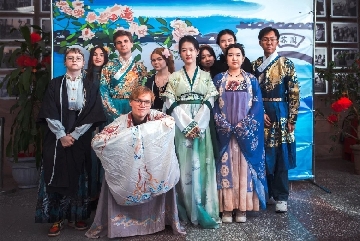#culture

27.02.2025
SUSU Celebrated International Mother Language Day
South Ural State University held a concert for the International Mother Language Day with the participation of students from various countries.

31.01.2025
International Students at YSTU Get Acquainted with Russian Phraseology
The teachers at the YSTU Department of Foreign Languages held a meeting with international students as part of the Russian Language Club with the students of the Institute of Architecture and Design.

№ 7 (38) 2024
The Russian Language is a Language of Opportunities. Russian House in the Republic of the Congo
Maria Fakhrutdinova, Head of the Rossotrudnichestvo Representative Office in Brazzaville, talks about the support provided by the Russian House in the Republic of the Congo.

№ 7 (38) 2024
Russian Idioms and Fixed Phrases for Foreigners. Delat' iz mukhi slona
The idiom “delat' iz mukhi slona” clearly demonstrates the human propensity to exaggerate and emphasizes the importance of keeping calm and staying rational when solving problems.

24.10.2024
Festival of Chinese culture and art “On the shores of Lake Baikal” at INRTU
The Festival of Chinese culture and art “On the shores of Lake Baikal” was held at INRTU on October 9 and 10, 2024. Irkutsk students from schools and universities, representatives of partner universities from China showed great interest in the event.

13.09.2024
Rossotrudnichestvo Expands Russia’s Cultural and Humanitarian Presence in Africa
On September 16, Rossotrudnichestvo will sign agreements with non-governmental organizations that will represent the partner Russian Houses in Guinea, Somalia, Sierra Leone, the Central African Republic, Chad, and Equatorial Guinea.